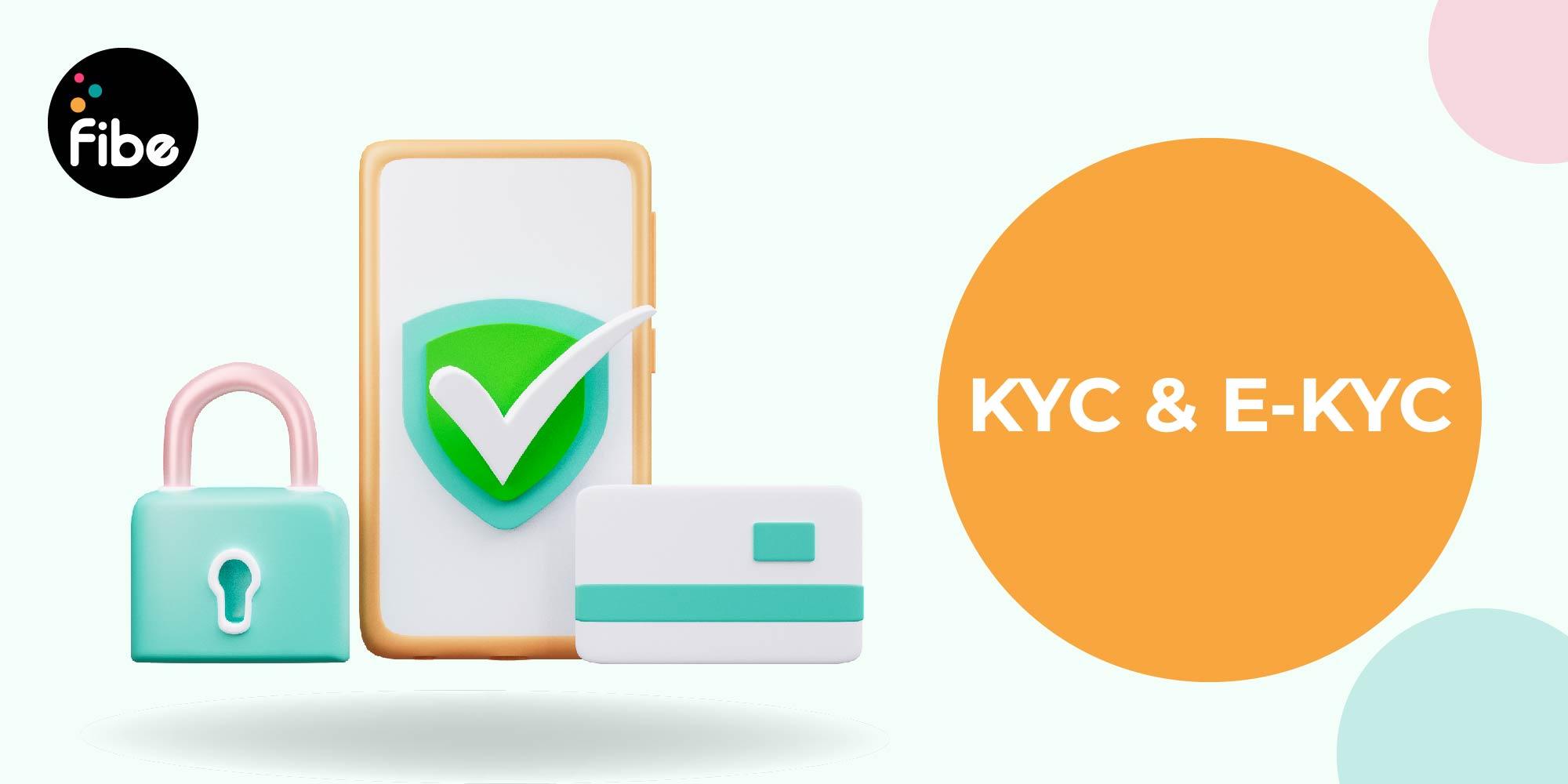KYC, e-KYC registration and documentation: All-in-one guide
Reviewed by: Fibe Research Team
- Updated on: 16 Apr 2025
Reviewed by: Fibe Research Team

Whenever you apply for a loan, invest, start a bank account or do other financial transactions, you may see an acronym mentioned as ‘KYC’. You may know that KYC requires you to submit documents like your Aadhaar card, PAN card, driver’s license and more, but do you know why this process is required?
Read on to understand what is KYC and learn how to complete your e-KYC registration.
KYC stands for ‘Know Your Customer’. It allows financial institutes to verify your identity and address. KYC was introduced by the RBI in 2002 to address illegal financial activities such as financing terrorism and money laundering.
Since it was introduced, the RBI has made many amendments to KYC norms to make the process more seamless. KYC verification requires you to provide various documents as ID and address proof.
In simple terms, e-KYC refers to a paperless, digital way to verify your identity. This verification procedure does not require you to submit a stack of documents to prove your identity. Instead, your identity is verified by an authorized agency and financial companies can rely on this information to complete all needed procedures.
It was introduced in 2013 after the Aadhaar was launched in 2010. The UIDAI (Unique Identification Authority of India) made the KYC process easier with the Aadhaar paperless e-KYC verification facility.
Some of the benefits of the streamlined e-KYC process include the following:
When you register for your KYC verification, you will require documents such as:
Identity proof: Aadhaar card, PAN card, passport, driver’s license or voter ID card
Address proof: Passport, voter ID card, utility bills or driver’s license
You can do your KYC registration in person or online. One traditional way is to visit the financial institution in person and submit your documents or have a representative visit your home for verification. Another way is to complete a video KYC process with a lender, such as a bank or a lender. Here a representative verifies your identity in real-time on video alongside digital documents that you submit.
However, another method is for you to register for e-KYC. Once you do this, any financial institution can get your information verified seamlessly. There are a few KYC registration agencies that allow you to carry out this process, such as:
You can complete your e-KYC process through these agencies with either OTP-based authentication or Biometric-based authentication. For OTP-based authentication, visit any of the above-mentioned KYC Registration Agencies’ web portals and create an e-KYC registration account.
Using your Aadhaar card, register on the database along with your Aadhaar-linked mobile number. Once you receive the OPT, verify your Aadhaar card.
For biometric authentication, you will be required to register in the same way. However, your Aadhaar will be verified by biometric data. So, once you submit your information, a representative will visit you to collect the biometric sample.
It is worth noting that e-KYC is not possible without an Aadhaar card. Once you have completed e-KYC registration, banks and other financial institutions can verify your identity by collecting information from the UIDAI database. You can save time in the future by visiting the nearest KYC registration agency and switching to e-KYC instead.
For a similarly effortless and convenient experience when it comes to taking a loan, you can rely on Fibe. Our KYC process is simple and you can get a personal loan up to Rs.5 Lakh in just 2 minutes. To proceed download our instant loan app or log in to our website.
KYC is a process mandated by the RBI for all financial institutions to verify the customer’s identity before proceeding with a transaction. e-KYC is the digital version of the same linked to your Aadhaar.
KYC documents are generally categorised as proof of identity and proof of address. Proof of identity includes any document with your photo and name while proof of address includes data on your permanent residence. These documents include your Aadhaar card, PAN card, passport and more.
To register for e-KYC, you can log on to the website of your nearest KYC registration agency and enter your Aadhaar number as well as the OTP. Then follow the steps mentioned to complete the process.
Your e-KYC can be based on your Aadhaar card or biometrics.
Aadhaar card verification is an example of e-KYC. Banks and financial institutes can verify your identity through the information linked to your Aadhaar card.